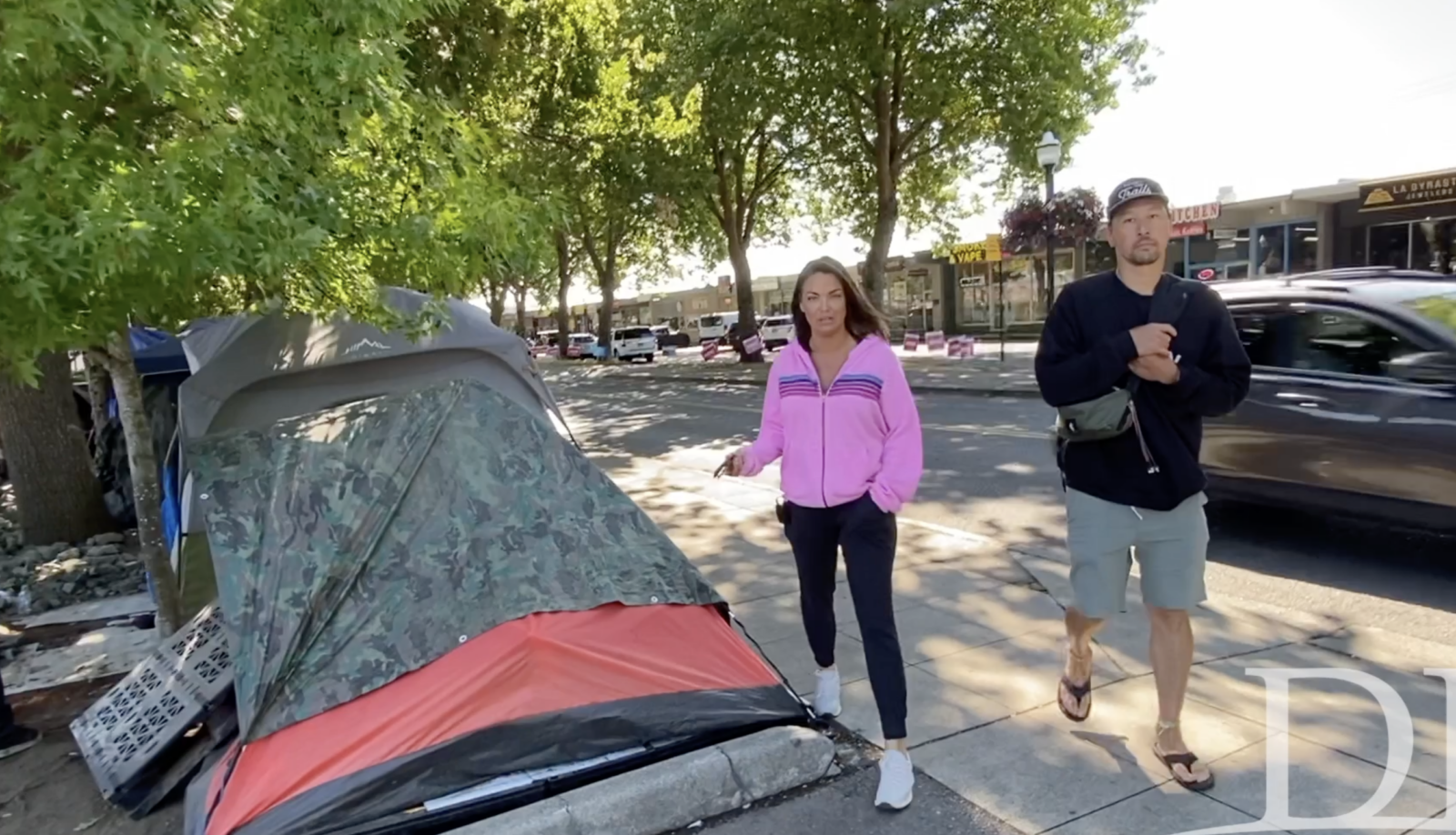As city and county officials remain paralyzed trying to manage Burien’s out of control homeless encampment crisis, Kristine Moreland of “The More We Love” is building trust and relationships.
“There are predators coming in from the community and preying on the people in here,” Moreland says as we walk past an encampment.
She and her outreach partner, Chri Wee, are helping move men and women out of tents in the heart of downtown Burien into the services they need.
They’ve been hired by local businesses to do the work politicians and the King County Regional Homelessness Authority have neglected.
Together, they’ve moved more than two dozen men and women into housing or programs in just one month.
“We celebrate because you know that they’re going to get a better opportunity in life,” Moreland tells me.
Wee explains that they’re able to be effective “with less red tape.”
“When somebody’s ready for help, connect them and make it happen” Moreland emphasizes. “Don’t put them in a system, don’t put all these levels of barriers on them.”
She refers to these barriers as “the bureaucracy” but avoids them by using a vast network of connections with housing providers, law enforcement, and church groups.
“Sometimes it’s not what you know, it’s who you know” explains Wee.
The More We Love team knows every single person in the Burien encampment by name and helps connect them with relatives, detox centers, and coveted openings in tiny house villages.
“I just made a phone call to a tiny house village, and they just told me they have three openings,” Moreland says with excitement. “So now I just have a girl doing intake right now.”
A homeless man who goes by “Buddha” says he’s seriously considering the offer of a tiny home.
When I ask him why he trusts Moreland and Wee, he tells me that “she’s done what she said she would.”
“We have a drug epidemic,” Moreland tells me. She says it’s important to call the crisis what it is.
According to Moreland, fentanyl and mental illness are the primary causes driving the crisis, not a lack of affordable housing.
She describes the claim that the crisis would be solved with more affordable housing as “such a false narrative.”
To properly serve the people living in the encampment, Moreland makes the clear distinction between someone who’s on the streets because they lost a job or can’t pay rent versus those who are addicted to drugs or struggling with mental illness. She says in her experience, the vast majority fall into the latter two categories.
“We do intake forms on everybody that we encounter,” she explains, “and we connect services immediately to get these people detoxed, clean, and in safe circumstances.
A lot of care and consideration goes into meeting someone’s needs with the right services. This looks different than many organizations that focus solely on providing housing.
“Do you think housing somebody behind a closed door so they can just use and die, without continuum of care or assistance in that housing is really effective housing?” Moreland asks.
Her efforts to make personal connections and maintain consistency are working. Moreland and Wee have helped over two dozen people in one month, and none of the tents have returned.
Multiple encampments have been cleared, but others have reappeared at new locations, and The More We Love is not contracted to address all of them.
The city’s Fourth of July parade had to be re-routed because of encampments lining the street.
Word is spreading in the homeless community that Burien is a free-for-all.
One homeless man tells me he “drifts around [Burien] a lot.” Another said, his “friend just told me they were letting us camp here.”
In Burien, camping is only illegal in public parks, but councilmember Stephanie Mora has proposed a camping ban across the city that is gaining momentum.
The city is also considering locations for a possible sanctioned encampment.
Mora says a camping ban would “help so we can actually get people moving into services.”
In the meantime, The More We Love is offering a solution with measurable results.
Moreland emphasizes the need to “reallocate the funding and work with the service providers that are actually doing the real work.”
The Burien community, along with others in King County, are watching closely in hopes that this model can be successfully replicated in other parts of the region.
“We’re creative problem solvers,” Wee tells me. “We keep moving forward, and we keep asking questions ,and we keep talking to likeminded folks and asking how they’re doing it.”
